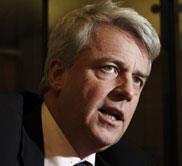The precise make-up of the new health and wellbeing boards has been set out in the Health and Social Care Bill.
The bill confirms that local authorities will have a duty to establish the boards, which are intended to lead on improving the strategic coordination of commissioning across NHS, social care, and related children’s and public health services.
It states that each board must include the following:
- at least one local authority councillor,
- the director of adult social services for the local authority,
- the director of children’s services for the local authority,
- the director of public health for the local authority,
- a representative of the local healthwatch organisation for the area of the local authority,
- a representative of each relevant commissioning consortium,
- and such other persons, or representatives of such other persons, as the local authority thinks appropriate.
A representative of the NHS Commissioning Board must also sit on the board when local authorities are drawing up joint strategic needs assessments and related strategies.
The bill states: “The National Health Service Commissioning Board must appoint a representative to join the health and wellbeing board for the purpose of participating in its preparation of the assessment or (as the case may be) the strategy.”
The wellbeing board may also request a representative from the commissioning board if it is “considering a matter that relates to the exercise or proposed exercise of the commissioning functions” of the commissioning board “in relation to the authority’s area”.
It states: “If the health and wellbeing board so requests, the National Health Service Commissioning Board must appoint a representative to join the health and wellbeing board for the purpose of participating in its consideration of the matter.”
However, the bill says that the representative “may, with the agreement of the health and wellbeing board, be a person who is not a member or employee of the National Health Service Commissioning Board”.
Additionally the bill says the elected mayor or the executive leader of the local authority may sit on the board as the sole council representative or as well as another councillor.
The bill also sets out the main functions of the wellbeing boards, which are to:
- encourage persons who arrange for the provision of any health or social care services in that area to work in an integrated manner,
- provide such advice, assistance or other support as it thinks appropriate for the purpose of encouraging the making of arrangements in connection with the provision of such services,
- encourage persons who arrange for the provision of health-related services in its area to work closely with the health and wellbeing board,
- encourage persons who arrange for the provision of any health or social care services in its area and persons who arrange for the provision of any health-related services in its area to work closely together.
Commissioning consortia are also required to consult with wellbeing boards when drawing up their annual plan “setting out how it proposes to exercise its functions in that year”.
Additionally the bill says health and wellbeing boards may group together to discharge their functions.
It states: “Two or more health and wellbeing boards may make arrangements for any of their functions to be exercisable jointly; any of their functions to be exercisable by a joint sub-committee of the boards; a joint sub-committee of the boards to advise them on any matter related to the exercise of their functions.”
Speaking at HSJ’s Delivering a New Approach to Public Health conference in London, health secretary Andrew Lansley said the government was already working with 25 local authorities on plans to set up Health and Wellbeing Boards.
He said: “We have to learn lessons quickly, so later this month I’ll be inviting every local authority to join a network of early implementers of health and wellbeing boards to share emerging knowledge.”
'Evolutionary' Health and Social Care Bill launched

Legislation to scrap primary care trusts and strategic health authorities, create commissioning consortia and give providers greater autonomy has been laid before parliament.
- 1
- 2
- 3
- 4
- 5
- 6
- 7
- 8
- 9
- 10
- 11
- 12
- 13
- 14
- 15
- 16
 Currently
reading
Currently
reading
Make-up and duties of health and wellbeing boards revealed
- 18
- 19
































































6 Readers' comments